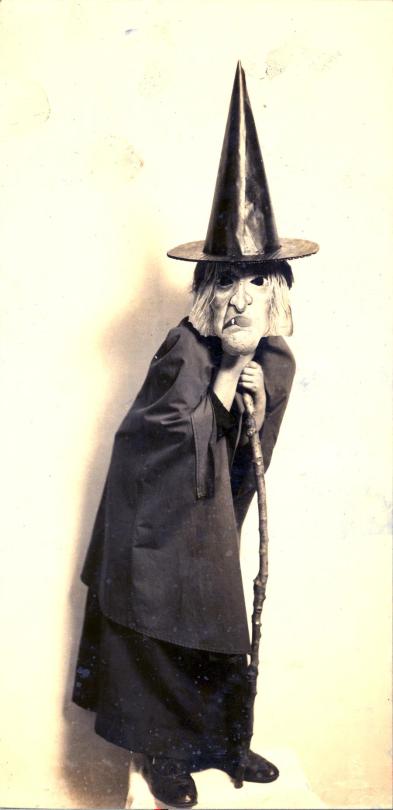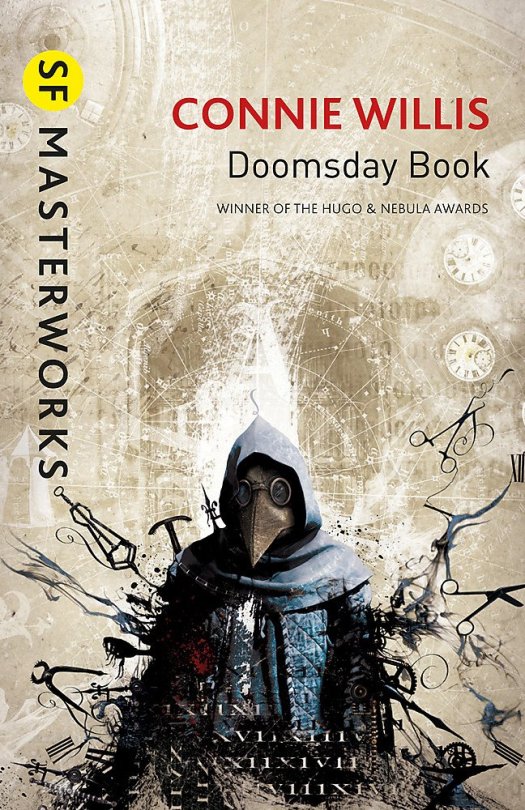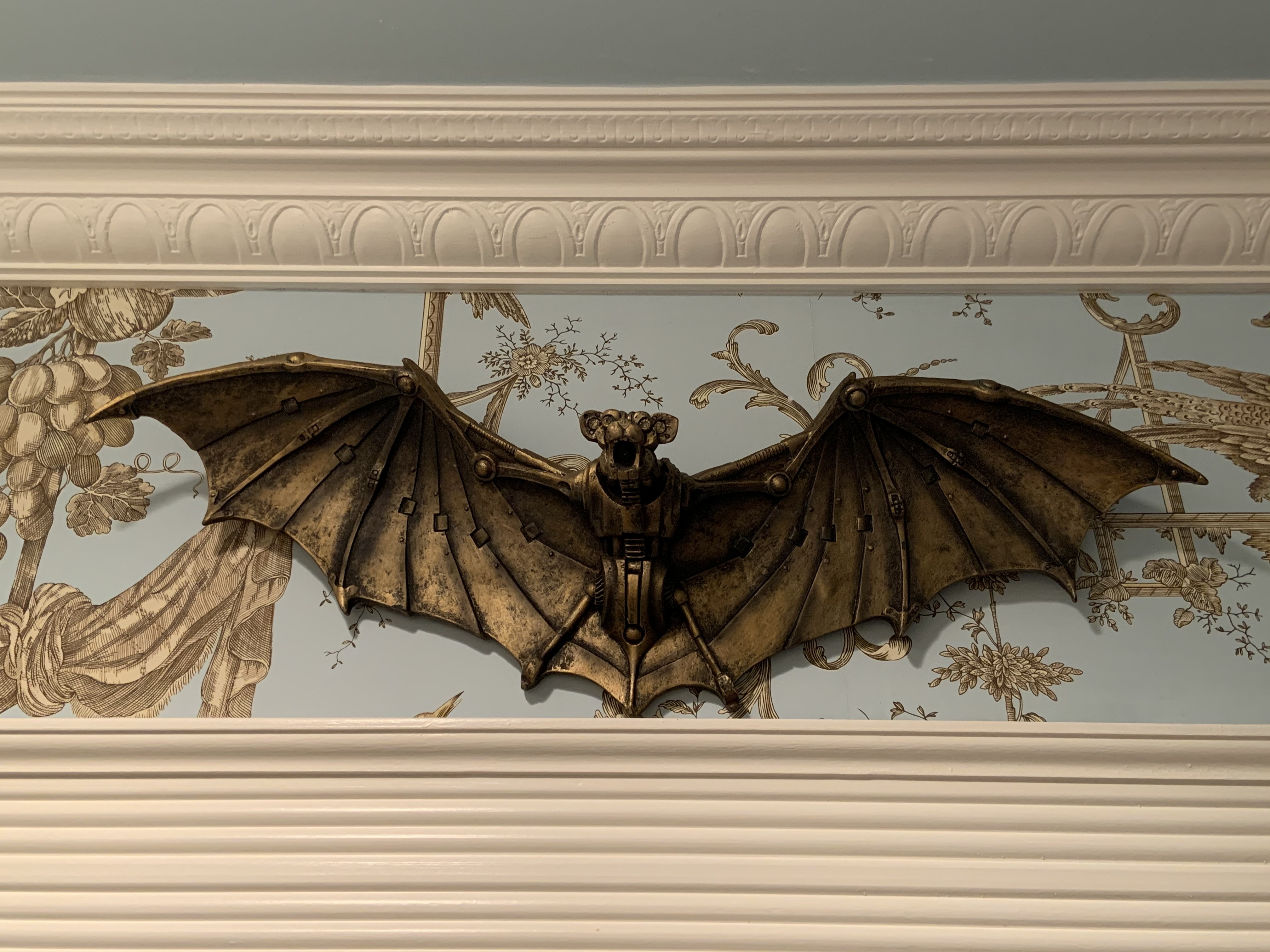Halloween 2020, Day 25

(Photo source is “Witch Girl 2″ by HauntingVisionsStock.)
Horror during a horrible pandemic? These links suggest that the one may help us cope with the other. I know my heart has been broken to pieces during this tragic time, and I’ve instinctively been seeking out horror to read.
- Ellie Marney at CrimeReads explains “Why We Read Scary Stories During Covid.”
- From Kayleigh Dray for Stylist: “Coronavirus: the psychological benefit of watching a traumatic horror film.”
- From Michael Marshall for New Scientist: “Horror Fans Are Better at Coping with the Coronavirus Pandemic.”
- From Corinne Sullivan for PopSugar “12 Sci-Fi Books About Pandemics That You Won’t Be Able to Put Down.”
- Earlier this year, I devoted one of my “Looking Back on Genre History” segments on the StarShipSofa podcast (Episode 613) to “Four Science Fiction Novels to Help Us Think about the Pandemic,” and you can listen to that here.

Here’s a favorite quote from a favorite novel, one I reference in the podcast segment above:
“I wanted to come, and if I hadn’t, they would have been all alone, and nobody would have ever known how frightened and brave and irreplaceable they were.” ― Connie Willis, Doomsday Book (1992)
The entirety of Jack London’s The Scarlet Plague (1912) is available online at Project Gutenberg. Here is an excerpt:
When he could eat no more, the old man sighed, wiped his hands on his naked legs, and gazed out over the sea. With the content of a full stomach, he waxed reminiscent.
“To think of it! I’ve seen this beach alive with men, women, and children on a pleasant Sunday. And there weren’t any bears to eat them up, either. And right up there on the cliff was a big restaurant where you could get anything you wanted to eat. Four million people lived in San Francisco then. And now, in the whole city and county there aren’t forty all told. And out there on the sea were ships and ships always to be seen, going in for the Golden Gate or coming out. And airships in the air—dirigibles and flying machines. They could travel two hundred miles an hour. The mail contracts with the New York and San Francisco Limited demanded that for the minimum. There was a chap, a Frenchman, I forget his name, who succeeded in making three hundred; but the thing was risky, too risky for conservative persons. But he was on the right clew, and he would have managed it if it hadn’t been for the Great Plague. When I was a boy, there were men alive who remembered the coming of the first aeroplanes, and now I have lived to see the last of them, and that sixty years ago.”
The old man babbled on, unheeded by the boys, who were long accustomed to his garrulousness, and whose vocabularies, besides, lacked the greater portion of the words he used. It was noticeable that in these rambling soliloquies his English seemed to recrudesce into better construction and phraseology. But when he talked directly with the boys it lapsed, largely, into their own uncouth and simpler forms.
“But there weren’t many crabs in those days,” the old man wandered on. “They were fished out, and they were great delicacies. The open season was only a month long, too. And now crabs are accessible the whole year around. Think of it—catching all the crabs you want, any time you want, in the surf of the Cliff House beach!”
A sudden commotion among the goats brought the boys to their feet. The dogs about the fire rushed to join their snarling fellow who guarded the goats, while the goats themselves stampeded in the direction of their human protectors. A half dozen forms, lean and gray, glided about on the sand hillocks and faced the bristling dogs. Edwin arched an arrow that fell short. But Hare-Lip, with a sling such as David carried into battle against Goliath, hurled a stone through the air that whistled from the speed of its flight. It fell squarely among the wolves and caused them to slink away toward the dark depths of the eucalyptus forest.
The boys laughed and lay down again in the sand, while Granser sighed ponderously. He had eaten too much, and, with hands clasped on his paunch, the fingers interlaced, he resumed his maunderings.
“The fleeting systems lapse like foam,” he mumbled what was evidently a quotation. “That’s it—foam, and fleeting. All man’s toil upon the planet was just so much foam. He domesticated the serviceable animals, destroyed the hostile ones, and cleared the land of its wild vegetation. And then he passed, and the flood of primordial life rolled back again, sweeping his handiwork away—the weeds and the forest inundated his fields, the beasts of prey swept over his flocks, and now there are wolves on the Cliff House beach.” He was appalled by the thought. “Where four million people disported themselves, the wild wolves roam today, and the savage progeny of our loins, with prehistoric weapons, defend themselves against the fanged despoilers. Think of it! And all because of the Scarlet Death—”
- Jack London, The Scarlet Plague (1912)


0 Comments
Recommended Comments
There are no comments to display.
Create an account or sign in to comment
You need to be a member in order to leave a comment
Create an account
Sign up for a new account in our community. It's easy!
Register a new accountSign in
Already have an account? Sign in here.
Sign In Now